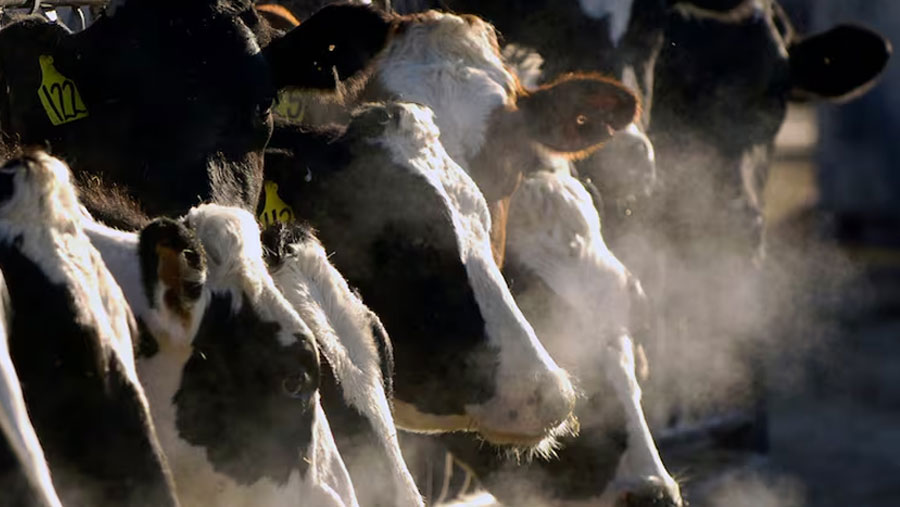


A second human case of bird flu has been confirmed in the United States since the virus was first detected in dairy cattle in late March, U.S. officials said on Wednesday (May 22). The infection of a dairy worker in Michigan expands the outbreak of the virus that has circulated in poultry for years, though the U.S. Centers for Disease Control and Prevention (CDC) said the risk to the general public remains low.
The CDC told reporters on a call it has not seen evidence of human to human transmission of bird flu and that it tested close to 40 people since March, including the Michigan worker. All the people who were tested were connected to or had exposures on a dairy farm, the CDC said.
A Texas dairy worker was confirmed to be infected in April.
Michigan and Texas are among nine states that have reported bird flu in dairy herds. Scientists have said they believe the outbreak is more widespread based on U.S. Food and Drug Administration findings of H5N1 virus particles in about 20% of retail milk samples.
Similar to the Texas case, the patient in Michigan only reported eye symptoms, the CDC said. The Michigan worker had mild symptoms and recovered, according to the state's Department of Health and Human Services.
The worker had regular exposure to livestock infected with bird flu, Michigan said. The leading hypothesis is that the case was a result of cow to human transmission, according to CDC.
The agency said "similar additional human cases could be identified" given high levels of the virus in raw milk from infected cows, and the extent of the spread in dairy cows.
Influenza experts said the second case associated with exposure to dairy cattle was concerning.
"It is worrisome that the virus is spreading widely in cows because this can lead to changes in the virus that could potentially increase human susceptibility," said Scott Hensley, an influenza vaccine expert at the University of Pennsylvania.
Bird flu has caused serious or fatal infections globally among people in close contact with infected wild birds or poultry, and scientists have long viewed the virus as being capable of causing a global health crisis.
There is no evidence of human-to-human transmission at present but health officials fear that if the virus were to eventually spread widely it could mutate into a form that could pass between humans.
Avian influenza A (H5N1) first emerged in 1996 but since 2020, the number of outbreaks in birds has grown exponentially, alongside an increase in the number of infected mammals.
(Compiled)